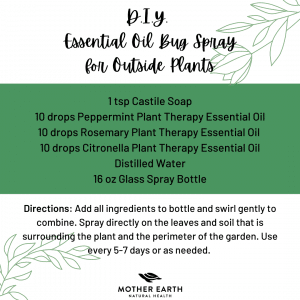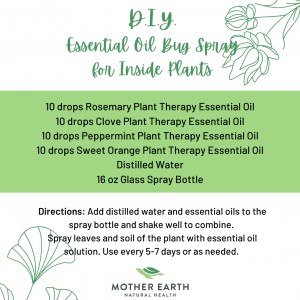My Cart: 0 item(s)
Spring and Summer are the times to be in the garden getting your hands dirty. We love the beautiful plants, but not the bugs lurking around the garden. It takes a lot of work to create a beautiful garden, and we certainly don’t want the bugs ruining it for us. In this article, there are plenty of tips to naturally keep your plants bug-free.
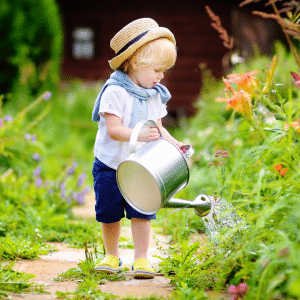
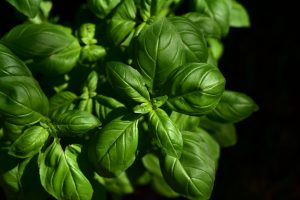
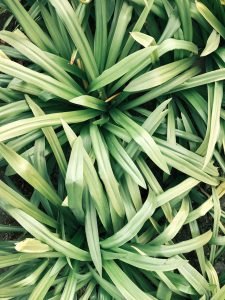
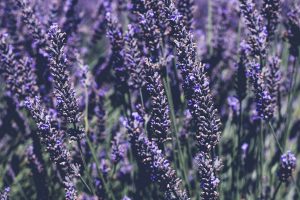
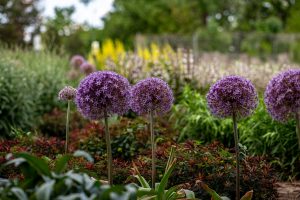
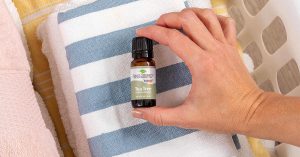
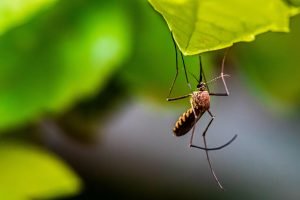
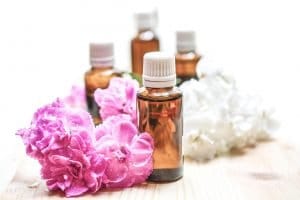
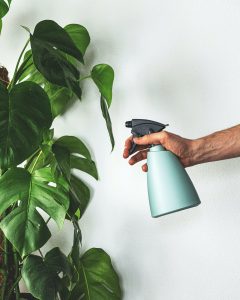
Avoid Toxic Pesticides When Keeping Plants Bug Free
Using store bought pesticides can be toxic and harmful, especially if you are consuming anything from the garden. Pesticides can be harmful to wild animals and pets, and they penetrate our food and water supply. Though we might not want the bugs around, we certainly don’t want to poison ourselves and our soil. If you have indoor plants it is even more important to care for them naturally. Keeping your house as chemical free as possible can help you, your kids and your pets.

Plant a Diverse Garden
Some plants are used to deter insects, so having a balanced and diverse garden can be great for avoiding some bugs. Lavender repels mosquitoes, while peppermint can deter ants and aphids. Plants and flowers have their own essential oils that can deter bugs and pests. Here are some plants that you can plant with your garden to try to keep your plants bug free.

Basil can repel house flies and mosquitos. This plant is great indoors or outdoors by your houseplants or garden.
Lemongrass contains citronella essential oil and can help fend off mosquitos. Planting it in a pot or sunny area in the garden can help get the mosquitos away without having to light a smelly candle.
Mint fights off mosquitos, but should be planted in a pot rather than the garden as it is very aggressive and can take over your garden.
Rosemary can ward off mosquitos and a variety of insect that is very harmful to vegetable plants. Rosemary is like mint in that it is very aggressive and will do better in a pot.
Sage is similar to rosemary and mint and should be planted in a pot, but is very good at deterring insects because of it's strong aroma. Throw a few leaves on a campfire to repel insects, too!
Catnip is an herb and a member of the mint family. It can repel insects such as mosquitos, flies, deer ticks and cockroaches. This is another invasive plant, so it is best grown in a pot.

Keep Your Plants Bug Free with Flowers
The plants and herbs listed above are wonderful for fending off bugs from your garden. Although, what if you want more beautiful flowers and colors to look at? These flowers are beautiful and do double duty by keeping your other plants bug free.
Lavender can be placed in sunny areas of the garden or even near entryways to your home to keep out moths, fleas, flies and mosquitos. Bundles of lavender around the home can be helpful as well.

Alliums are a natural insecticide and fend off many insects that are known to wreak havoc on vegetable gardens. Slugs, aphids, carrot flies and cabbage worms are just a few of the unwanted insects that these flowers will repel.
Chrysanthemums repel roaches, ants, Japanese beetles, ticks, silverfish, lice, fleas, bedbugs, spider mites, harlequin bugs and root-knot nematodes.
Marigolds fight off aphids, mosquitos, and even rabbits and nematodes.
Nasturtiums fend off white flies, squash bugs, aphids, beetles, and cabbage loopers.

Essential Oils for Bug Free Plants
It can be difficult to grow plants in certain climates, but there are plenty of essential oils that can have the same effects.
Peppermint or Spearmint can repel ants, spiders, aphids and beetles.
Rosemary repels moths, flies, mosquitos and ticks.
Tea Tree can deter ants, mosquitos and ticks.

Cinnamon Bark keeps away the silverfish, cockroaches and dust mites (I need all of the cinnamon bark!)
Clove can fend off wasps, ants, cockroaches and aphids.
Lemongrass will fight off gnats, ants, mosquitos, fleas and ticks (this should always be in my diffuser, haha!).
Lavender will scare off mosquitos, fleas, flies and spiders.

Citronella is the most known and will repel spiders, gnats, fleas and mosquitos.
Clary Sage can fight off ticks, flies, and chiggers.
Cedarwood is good for repelling aphids, lice, moths, slugs and weevils.

All these essential oils can be found in our stores and online on our website.
Read below to learn how to use essential oils to keep your plants bug free.
Essential Oil Recipes
Essential Oil Plant Bug Spray for Outside Plants (1):
Ingredients:
- 1 tsp Castile Soap
- Peppermint Plant Therapy Essential Oil - 10 drops
- Rosemary Plant Therapy Essential Oil - 10 drops
- Citronella Plant Therapy Essential Oil - 10 drops
- Distilled Water
- 16 oz Glass Spray Bottle
- Add castile soap to the spray bottle, and top off with distilled water. Mix in essential oils and swirl gently to combine. Do not shake.
- Mist the leaves and stems of the plant with essential oil solution. Spray mixture directly on the soil that is surrounding the plant and the perimeter of the garden. Use every 5-7 days or as needed.
Essential Oil Plant Bug Spray for Inside Plants (2):
Ingredients:
- Rosemary Plant Therapy Essential Oil - 10 drops
- Clove Plant Therapy Essential Oil - 10 drops
- Peppermint Plant Therapy Essential Oil - 10 drops
- Sweet Orange Plant Therapy Essential Oil - 10 drops
- Distilled Water
- 16 oz Glass Spray Bottle
- Add distilled water and essential oils to the spray bottle and shake well to combine.
- Spray leaves and soil of the plant with essential oil solution. Use every 5-7 days or as needed.
Neem Oil
Neem oil has been used for centuries medicinally, and is used in many cosmetics and insecticides. Harmless to humans and animals, this oil can be detrimental to insects, mites and fungi. There are hundreds of insects that neem oil is used to control, but fortunately it isn't harmful to beneficial insects and animals. Making your own neem oil spray is more cost effective and potent than a store-bought neem oil insecticide. Keep your plants bug free with the following recipe (4): Ingredients:- 1-2 tbsp pure neem oil
- 1 gallon water
- 1-2 tsp mild dish detergent
- Spray Bottle or Garden Sprayer
- First, combine water and dish detergent in spray bottle, swirling or mixing thoroughly to combine.
- Second, add neem oil to water and detergent mixture. Mix thoroughly to combine and ensure solution is emulsified.
- Finally, spray mixture on all plant surfaces, including the tops and undersides of leaves, until they are completely wet and dripping.
- This mixture can be applied every 7-14 days.

Sticky Traps
Sticky traps are non-toxic, inexpensive and simple to use and set up. They create a protective barrier from flying bugs like fungus gnats, white-flies, or aphids. Because these traps are sticky, they also protect your plants from sticky icky spiders (3).Diatomaceous Earth (food grade)
This is a simple soil mix-in that protects plants from many different bugs. It dries out the exoskeleton of bugs so they dry up and fade away. The best part is that it isn’t harmful to your children or pets. To use, lightly dust your plants and soil with the diatomaceous earth powder, and reapply it to the soil after watering (3).Soap and Water
A simple solution of soap and water can also be used to mitigate bugs. The soap will dry out the bugs, thus making sure they won’t be a bother. Just add a tablespoon of soap (I prefer a natural soap without harsh ingredients) to a 16 oz spray bottle with water. Spray this solution on your plants every 5-7 days or as needed.Grow On
Now that you have the tips and tools at your fingertips, you can let your plants grow on. In conclusion, these natural tips and tricks can help your garden grow happily and healthfully while keeping the plants bug free. Above all, plants are a natural part of the ecosystem, so they will attract insects and wild animals. Too many bugs can get annoying and cut down on your own produce supply, so use these tips for harmless ways to reduce those bugs. Interested in other posts related to essential oils and natural products? Check these out: https://www.motherearthnaturalhealth.com/getting-kids-ready-to-go-back-to-school/ https://www.motherearthnaturalhealth.com/healthy-summer-skin/ https://www.motherearthnaturalhealth.com/boost-your-immune-system/ https://www.motherearthnaturalhealth.com/best-essential-oils-for-immune-support/ https://www.motherearthnaturalhealth.com/essential-oil-dilution-chart/ https://www.motherearthnaturalhealth.com/homemade-cleaning-products-made-with-essential-oils/ Resources:- https://www.recipeswithessentialoils.com/essential-oil-plant-spray/
- https://nestingwithgrace.com/using-essential-oils-on-houseplants-keep-the-bugs-away-and-grow/
- https://sunnydazedecor.com/blogs/news/7-natural-ways-to-keep-bugs-off-plants
- https://www.thespruce.com/using-neem-oil-as-an-organic-insecticide-2132579
- https://www.happy-mothering.com/best-essential-oils-gardening/


